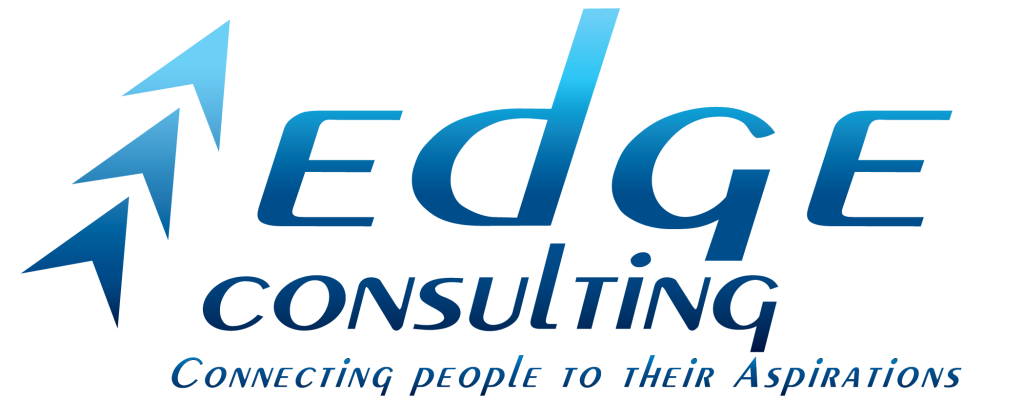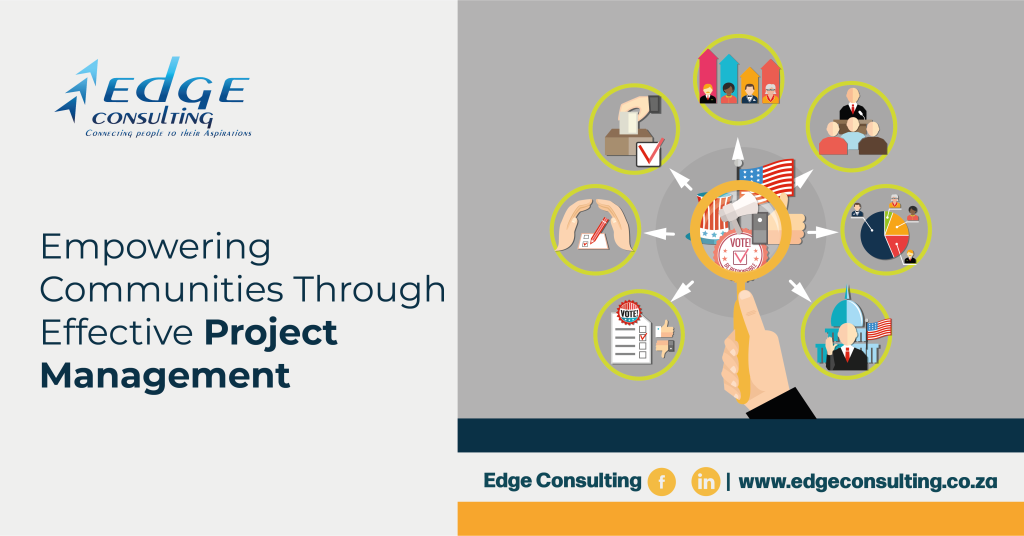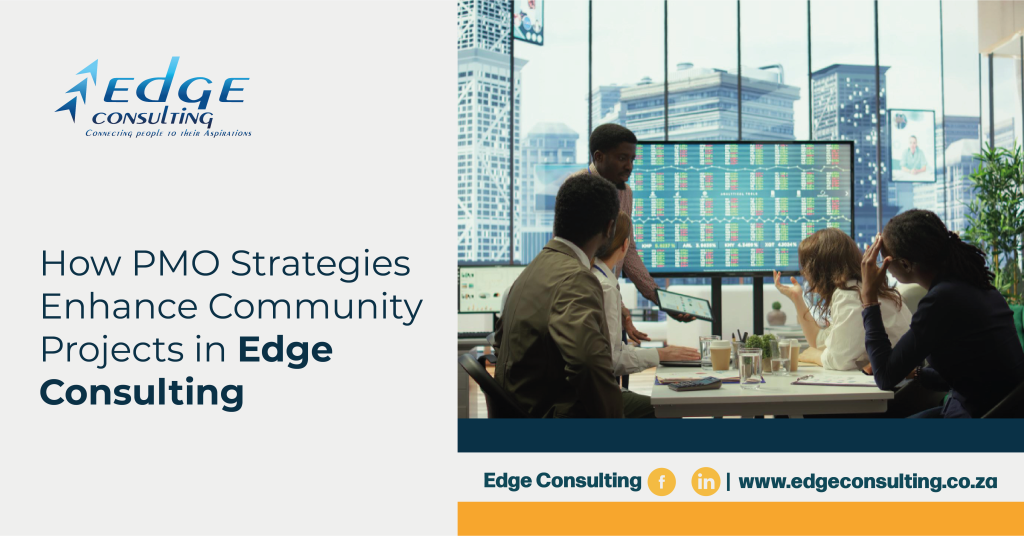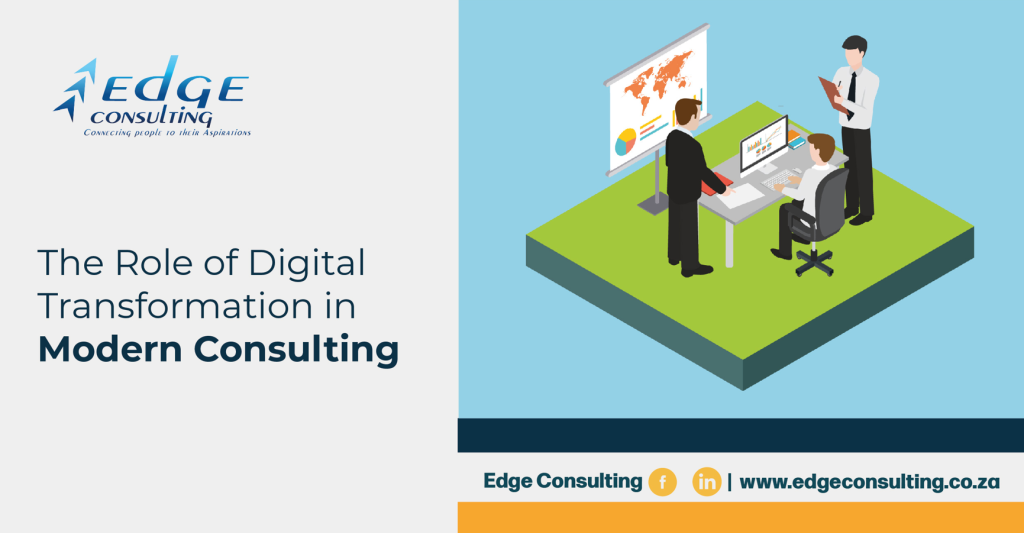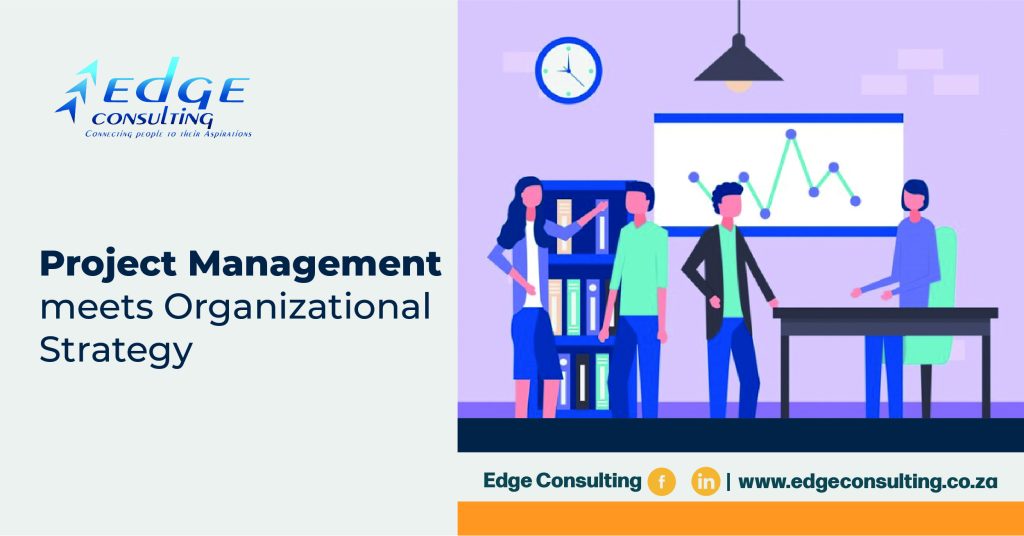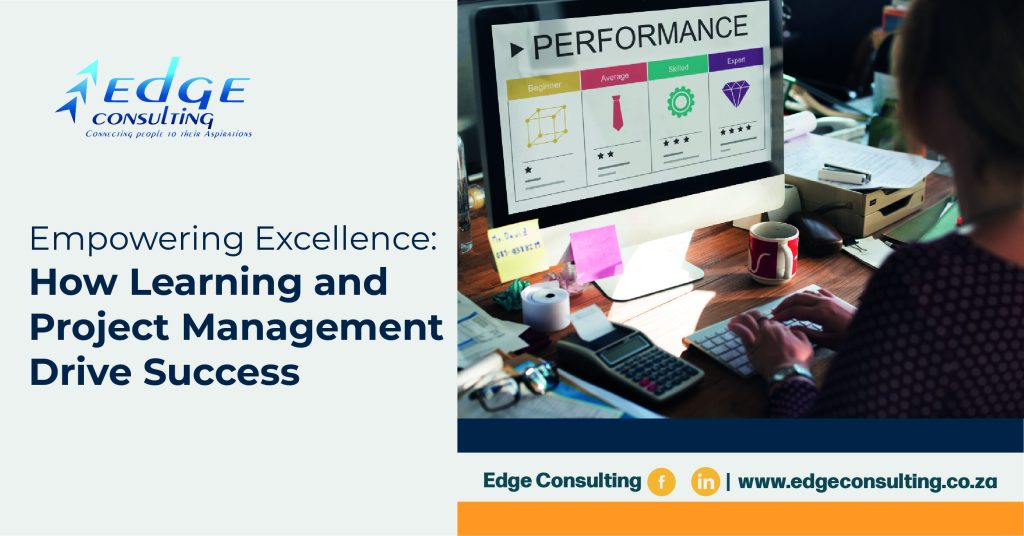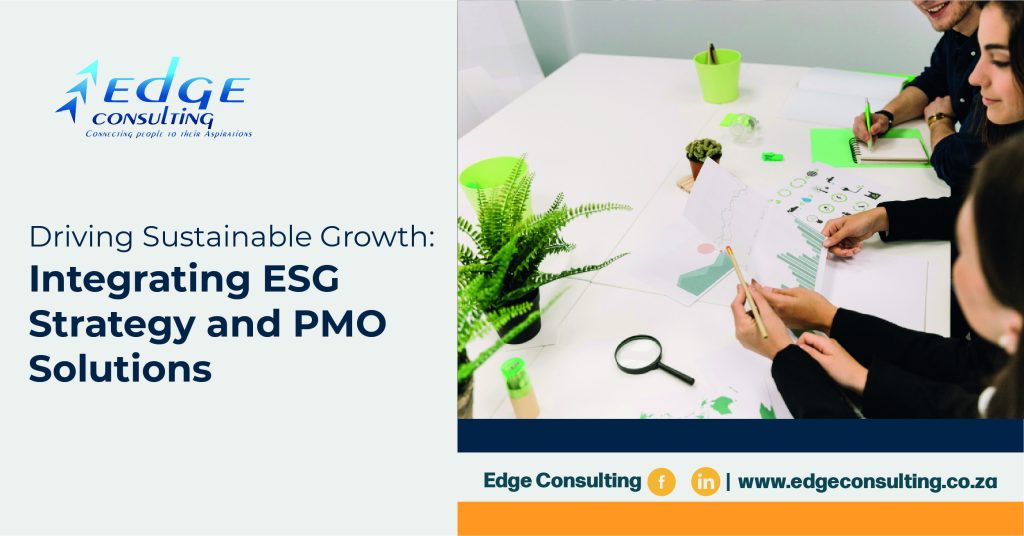PMO solutions drive business efficiency and social impact.
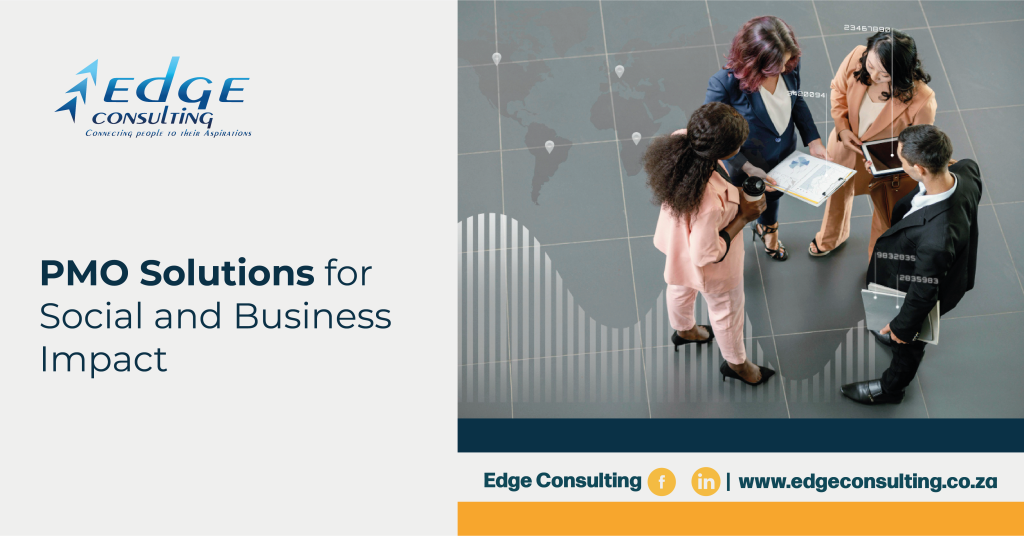
In today’s fast-evolving landscape, organizations must balance business success with social responsibility to create meaningful, sustainable impact. However, achieving this dual goal requires structured planning, strategic execution, and efficient resource management. Project Management Office (PMO) solutions provide the governance, processes, and methodologies necessary to drive both business growth and community development.
At Edge Consulting, we help organizations implement PMO strategies that ensure their projects deliver measurable value—whether for profitability, efficiency, or social good. By integrating best-in-class project management practices, we empower businesses to execute initiatives with clarity, accountability, and long-term impact.
Why PMO Solutions Matter for Business and Society
A PMO is more than just a project oversight function—it acts as a strategic enabler that aligns projects with corporate objectives, stakeholder expectations, and societal needs. Through a structured framework, PMO solutions help organizations:
Enhance operational efficiency by optimizing project workflows and reducing waste.
Ensure financial accountability with data-driven budgeting and risk management.
Strengthen stakeholder collaboration by aligning efforts across departments and external partners.
Drive innovation through systematic research, execution, and continuous improvement.
Measure social and business impact using performance analytics and key success indicators.
By implementing a robust PMO framework, businesses can scale faster, maximize ROI, and contribute meaningfully to society.
Key PMO Strategies for Business and Social Transformation
1. Aligning Corporate Goals with Social Responsibility
Organizations today must go beyond financial performance and integrate Environmental, Social, and Governance (ESG) principles into their business strategy. A well-defined PMO ensures that projects are not only aligned with corporate objectives but also contribute to community well-being and sustainability.
For example, a company investing in renewable energy solutions can use PMO methodologies to:
- Plan project phases effectively.
- Ensure regulatory compliance.
- Measure carbon footprint reduction.
- Engage local communities in clean energy initiatives.
By incorporating social impact metrics into project planning, businesses can enhance brand reputation, customer trust, and long-term sustainability.
2. Improving Efficiency and Cost Management
One of the biggest challenges organizations face is resource misallocation, leading to budget overruns and missed deadlines. PMO strategies focus on cost-effective project execution, ensuring that financial resources are optimized for maximum return on investment (ROI).
Key PMO-driven improvements include:
- Budget forecasting to prevent overspending.
- Agile methodologies for faster project delivery.
- Process automation to reduce manual errors and inefficiencies.
With better financial governance, businesses can reduce costs, enhance productivity, and reinvest savings into social initiatives.
3. Strengthening Multi-Stakeholder Engagement
For large-scale initiatives—whether business expansion or community development—collaboration is key. PMO solutions create structured engagement frameworks that ensure seamless coordination between internal teams, government agencies, NGOs, and corporate partners.
Effective stakeholder engagement results in:
- Increased project buy-in and support.
- Faster regulatory approvals and risk mitigation.
- Stronger community participation for long-term sustainability.
For example, a corporate skills development program can succeed only when businesses, educational institutions, and local authorities collaborate effectively. PMO frameworks ensure transparency, accountability, and shared decision-making, maximizing impact.
4. Enhancing Risk Management and Compliance
Unexpected risks—such as regulatory changes, economic fluctuations, or technological disruptions—can derail even the most well-planned projects. A PMO-driven risk management approach proactively identifies threats and develops contingency plans to minimize disruptions.
Key risk management practices include:
- Scenario planning to anticipate challenges.
- Regulatory compliance tracking to avoid legal pitfalls.
- Real-time monitoring tools to address issues before they escalate.
For example, businesses expanding into new markets must navigate legal complexities, supply chain risks, and cultural differences—all of which can be managed effectively through a structured PMO approach.
5. Measuring and Scaling Business & Social Impact
Impact measurement is essential to ensuring that projects deliver tangible benefits. PMO solutions integrate data-driven analytics to track both business performance and social contributions.
Essential Key Performance Indicators (KPIs) include:
Business Impact: Revenue growth, operational efficiency, and customer satisfaction.
Social Impact: Job creation, sustainability metrics, and community development outcomes.
By analyzing real-time data, organizations can refine strategies, scale successful initiatives, and drive continuous improvement.
Transforming Business and Society with PMO Solutions
PMO strategies are not just about managing projects—they are about driving transformation. By integrating business efficiency with social responsibility, organizations can create a lasting impact on their industry and the communities they serve.
At Edge Consulting, we specialize in customized PMO solutions that help businesses:
Improve operational efficiency.
Align projects with ESG and social impact goals.
Strengthen stakeholder collaboration.
Scale sustainable, high-impact initiatives.
Let’s Build a Better Future Together!
Are you ready to enhance both your business performance and social impact? Partner with Edge Consulting today to implement PMO strategies that drive long-term success and meaningful change.
Contact us to get started!
